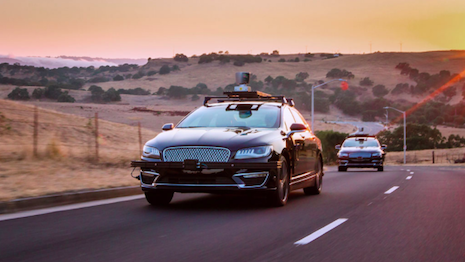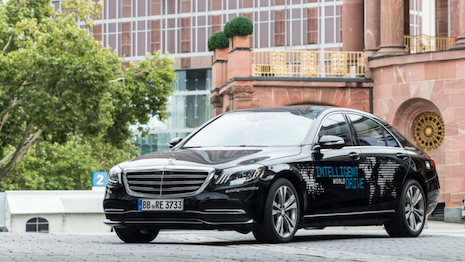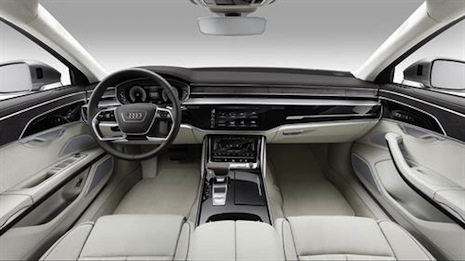 Driverless cars come with their own set of risks. Image credit: Aurora
Driverless cars come with their own set of risks. Image credit: Aurora
As automotive brands continue to develop driverless technology to bring the auto industry closer to completely autonomous vehicles, consumers in the United States are still not convinced.
While automakers are excited to bring driverless cars into development, many consumers are not as enthused, with a recent accident making matters worse. According to a new Ipsos report, U.S. consumers are more hesitant than other regions with one in four saying they would “never” use an autonomous car.
“Our entire society and consumption model for the past 50 years has been built on cars, highways and driving – from the rise of suburbs and innovations like the drive-thru, to cultural icons like the great American road trip," said Oscar Yuan, president of Ipsos strategy 3. “We are on the verge of that changing quickly, with the arrival of autonomous, self-driving vehicles.
“It’s not a question of if, but of when. Their impact will be wide and deep, beyond the immediate realm of mobility, reaching into areas like how our cities are designed, how we shop and where we choose to live,” he said.
Modern auto industry
As subscription models become more apparent in auto and alternative ways of ownership rise, 42 percent of drivers are still more interested in owning their own vehicles.
Mercedes intelligent world drive. Image credit: Mercedes
In regards to driverless technology, consumers are much more likely to adapt to the new technology if it will save them money. About 45 percent said they would switch to a driverless vehicle if it cost much less and 24 percent agreed if it cost the same.
However, 30 percent of U.S. survey takers revealed they would likely take more and longer road trips if they had an autonomous car.
While cost maybe be able to attract consumers, automaker's claims of the benefits of driverless cars will not help. U.S. consumers are skeptical of auto brands self promoting factors such as safety, convenience and comfort.
Audi's A8 features driverless tech. Image credit: Audi
Autonomous driving
German automaker Mercedes-Benz anticipated the future shift to autonomous driving with a trip around the world while gaining insights on intelligence technology along the way.
In what the brand is calling the first-ever automated test drive around the world, Mercedes’ “Intelligent World Drive” visited five continents. A series of video installments documented the travels online (see more).
Automakers were already struggling to get the public on board with autonomous vehicles, but a recent tragedy involving a self-driving Uber car has made the near-future prospects for the idea even more challenging.
Last month, a woman was tragically killed during an accident involving a test of one of Uber’s self-driving cars. Basically every luxury car brand is testing or planning to test driverless cars in the near future, but events such as this will make the idea difficult to sell (see more).
"Americans, and people around the world, are surprisingly favorable to the idea," Mr. Yuan said. "Such tectonic shifts in society and behaviors are usually met with great resistance – that is much less the case with autonomous vehicles, with more than half of Americans viewing them favorably, not to mention the almost 70 percent of millennials that do."

